Making memories afresh: One young racer's indomitable double comeback
As a super-ambitious young racer, Tom Townsend devoted himself to chasing results – until two serious crashes forced a change in perspective
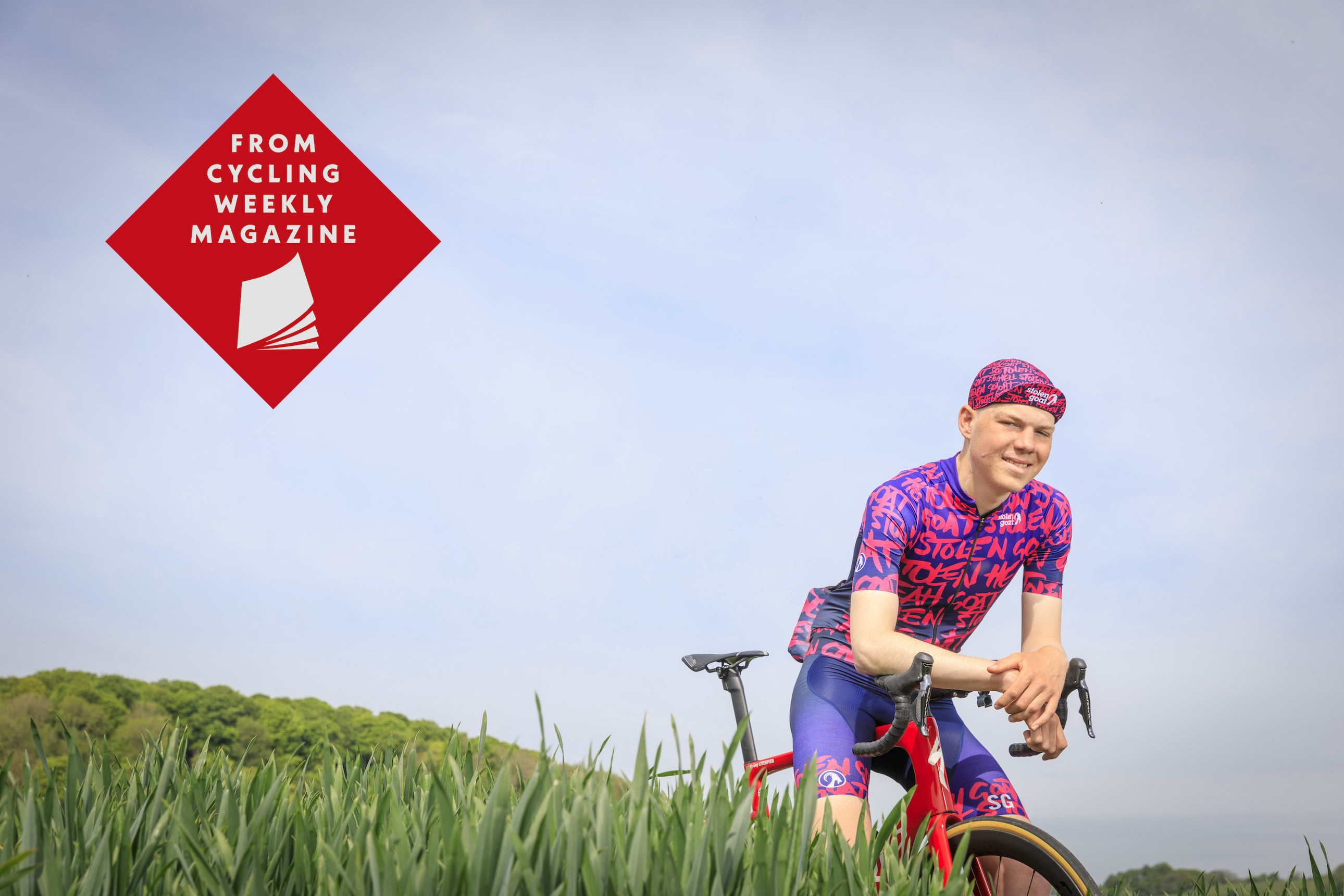
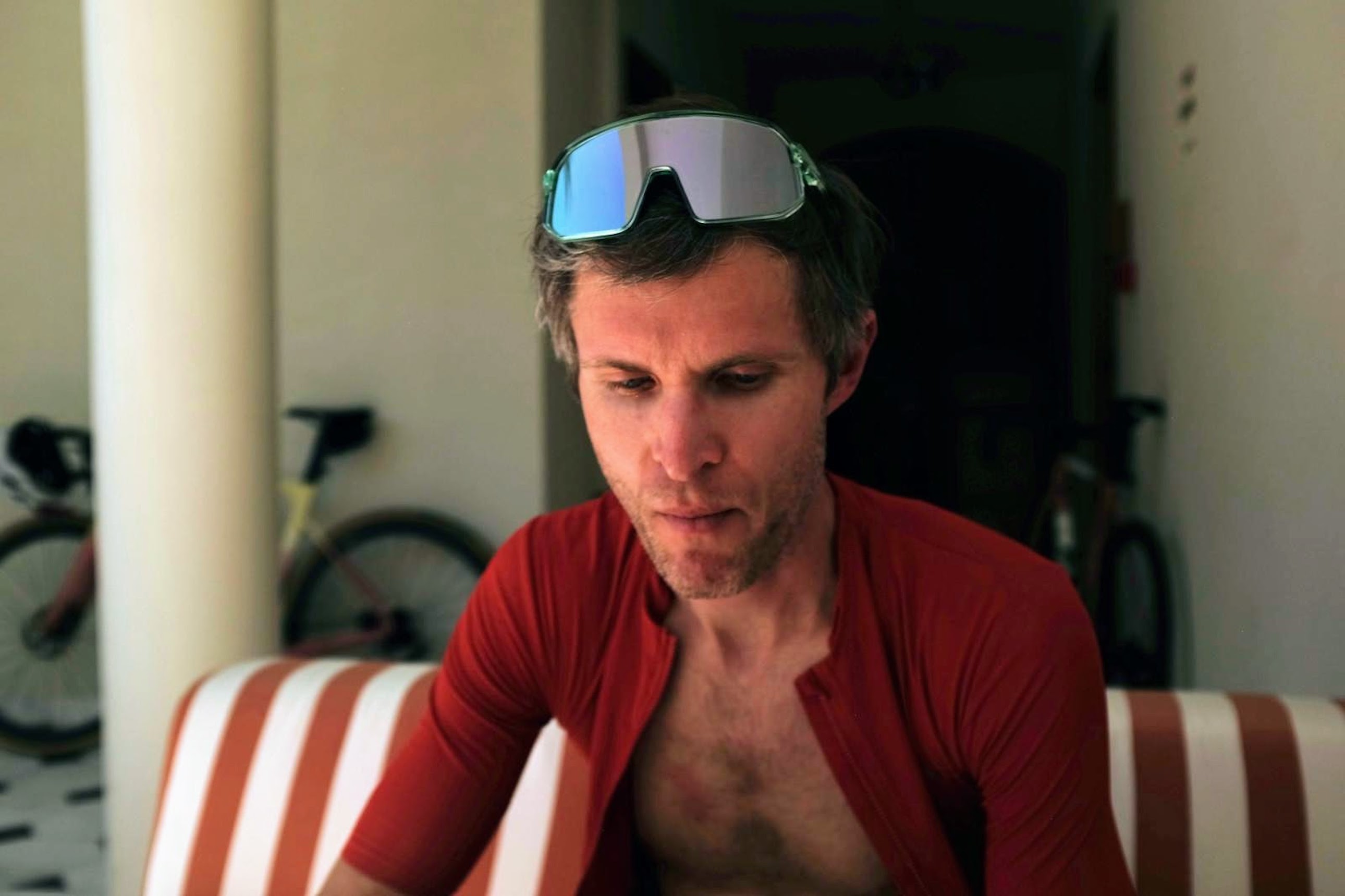
This article was originally published in Cycling Weekly's print edition as part of the long-running MY FITNESS CHALLENGE series.
In 2018, his last year at school, Tom Townsend added 80 watts to his threshold power and only A-levels stood in the way of his making a serious tilt at bike racing. By summer 2019, school was finally out and he was free to unscrew the lid on his teenage ardour. “That season I went from fourth-cat to second-cat and raced a few National Bs,” says the 22-year-old, speaking to me by video call from his living room in High Wycombe. “But then the first crash wiped me out.”
The last thing Townsend remembers is riding along near Henley an hour before the crash; his next memory is waking up in hospital two days later. “I had a neck brace on, and I remember thinking, ‘What on earth is going on?’ I had broken my neck, both my cheekbones, my pelvis and my collarbone, and initially the doctors had no idea whether I was going to be a vegetable or be mentally fine.”
Comeback number one
It turned out a car had pulled across Townsend’s path and the impact, recorded by his Garmin at 30mph, had knocked him unconscious for more than 20 minutes. He was airlifted to hospital where scans revealed he had sustained a traumatic brain injury with multiple haemorrhages and a very uncertain prognosis. “Over the next few days and weeks, I was telling everyone I was fine – that my brain was OK – but my parents weren’t convinced,” he shrugs. “I had just signed for Vredestein-Basso [now Stolen Goat RT], so I was eager to rebuild over the winter – I had a carrot to aim for.”
So avid was his ambition that Townsend resumed training regardless of his cracked bones, persistent headache and faltering balance. “I was a bit obsessive back then,” he says, putting it mildly. “I was back on the turbo before I could walk in a straight line without wobbling.” Why such a rush – did racing really matter that much? “Yeah, cycling was the centre of my life and had been since Year 11 [of school],” he admits. “It was my identity: I was known as a cyclist.” Incredibly, he missed only two weeks of training.
By the spring of 2020, Townsend had regained his pre-crash FTP of 360 watts, but now racing was on hold for everyone as Covid-19 swept the globe. His first competitive test came with the autumn hill-climb season, and he duly demonstrated his potential by clinching the win on the long Tan Hill climb in North Yorkshire. Finishing the year on such a high left the young racer excited for a breakthrough season in 2021 as he planned a big winter of training under the guidance of Dean Downing.
His first target after the long-awaited return to racing post-Covid was a Regional A in Northumberland on 27 June, but his application was rejected as the race organisers were prioritising local riders. On the hop, he switched to the Severn Bridge road race in Gloucestershire, taking place on the same day, with the Regional A getting under way ahead of the National B. It would turn out to be a cruel twist of fate. Forty-five kilometres into the race, and still in the bunch, Townsend’s back end clattered into a pothole at 30mph. The force of the impact snapped his chainstay and sent him flying head-first onto the tarmac. There would be no bouncing back in two weeks this time.
Get The Leadout Newsletter
The latest race content, interviews, features, reviews and expert buying guides, direct to your inbox!
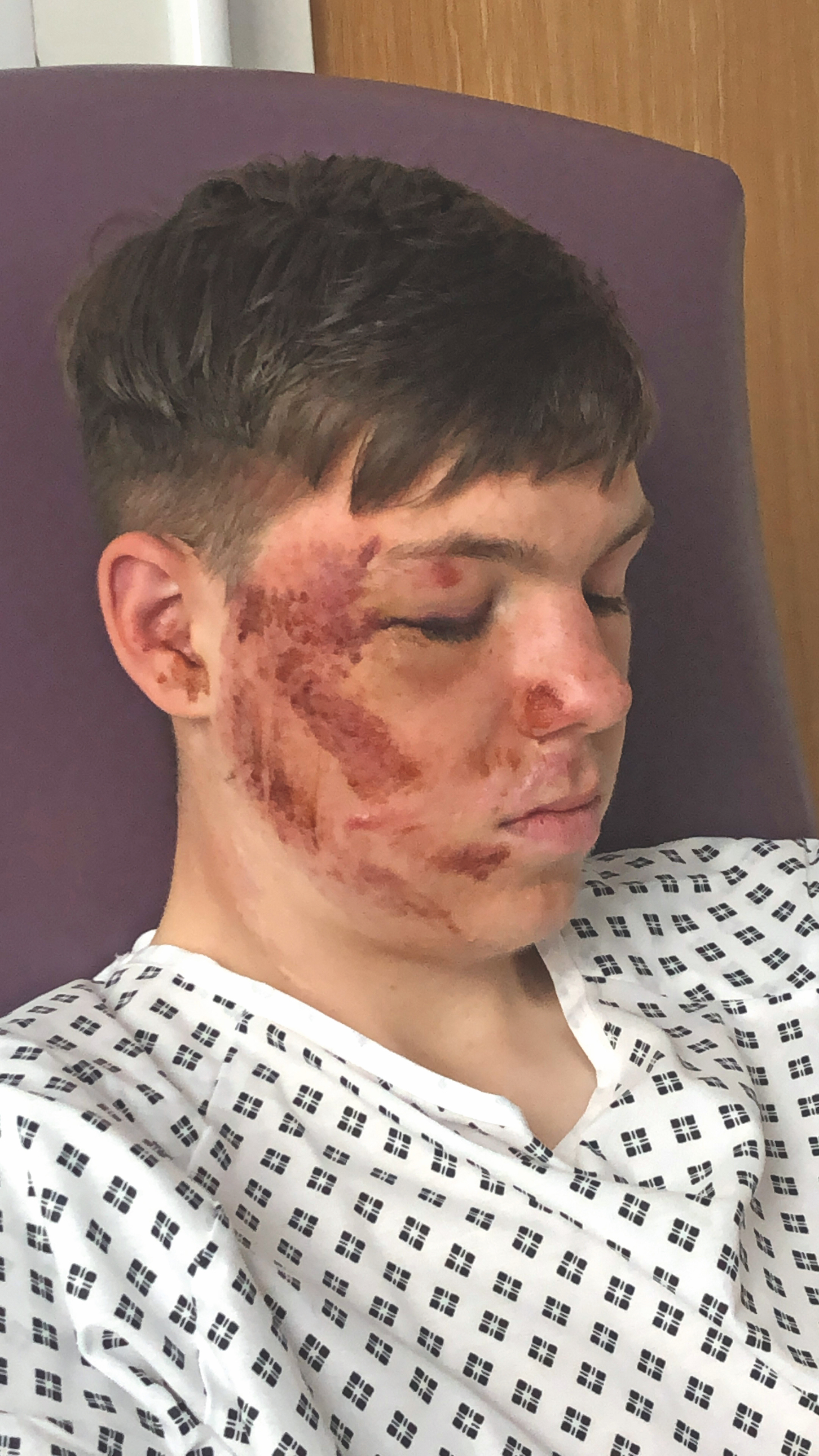
In the second high-speed crash, Townsend's head and face bore the brunt of the impact
“The last thing I remember from before the crash was the opener session the day before,” says Townsend, “and my next memory is being at home 10 days later. I don’t even remember being in hospital.” The memory loss was more prolonged this time because he had sustained an even heavier head impact, fracturing his skull and causing multiple bleeds in his brain – including a form of haemorrhage with a 50-80% death rate. His four-day stay in hospital is a complete blank, aside from a string of goofy messages and social media posts which, though he doesn’t recall sending them, reassure him that his droll sense of humour remained intact throughout. “As I was being discharged, my mum messaged asking how I was doing. So I sent her a selfie in front of the hospital with the caption, ‘Apparently I was in hospital but this is no longer the case’.”
His family soon realised the memory loss was no joke. Even five days after getting home, Townsend was still waking each morning with no inkling of the day before. “I’d come downstairs and have to ask my mum the same question – what happened? – and she would have to go through it all over again from the crash to the present.” Though it was scary to live through at the time, Townsend now regards the 10-day blank as a strange kind of a blessing. “Think about the 10 worst days of your life: you’d probably want to forget them,” he ventures drily. “It’s the only reason I can joke about this now, because I remember none of it.” The recovery, mentally and physically, was very different from his first crash; gone was the urgent rush to get back on the bike. “I was like, I’m not sure I want to keep doing this. This is really screwing me now,” he says, recalling the darkest days. After moving to Durham to start his degree last autumn, Townsend continued to struggle with headaches and short-term memory lapses, so opted to take a year out. The free time allowed him to slowly fall back in love with cycling. “It took me until mid-December to decide I wanted to be a bike rider again,” he admits, smiling as he remembers getting back into it. “I had a year off and, well, I like riding my bike!”
Finding a new reason to ride
A return to road racing was ruled out after doctors advised adamantly against it. “The consultant said, ‘If you were a pro under UCI regs, you wouldn’t get a licence. You can’t afford the risk of crashing and hitting your head again’.” Still supported by Stolen Goat RT, Townsend began to ponder the alternatives: forms of cycling that would be fulfilling and challenging but with less likelihood of a knock to the head. Joining his Durham housemates for “crazy long rides in the Pennines” soon got him back in the groove, and late last year his dad Guy suggested they take on GB Divide – a 1,200-mile, mostly off-road bikepacking route from Land’s End to John o’ Groats – together as a two-man team over 13 days.
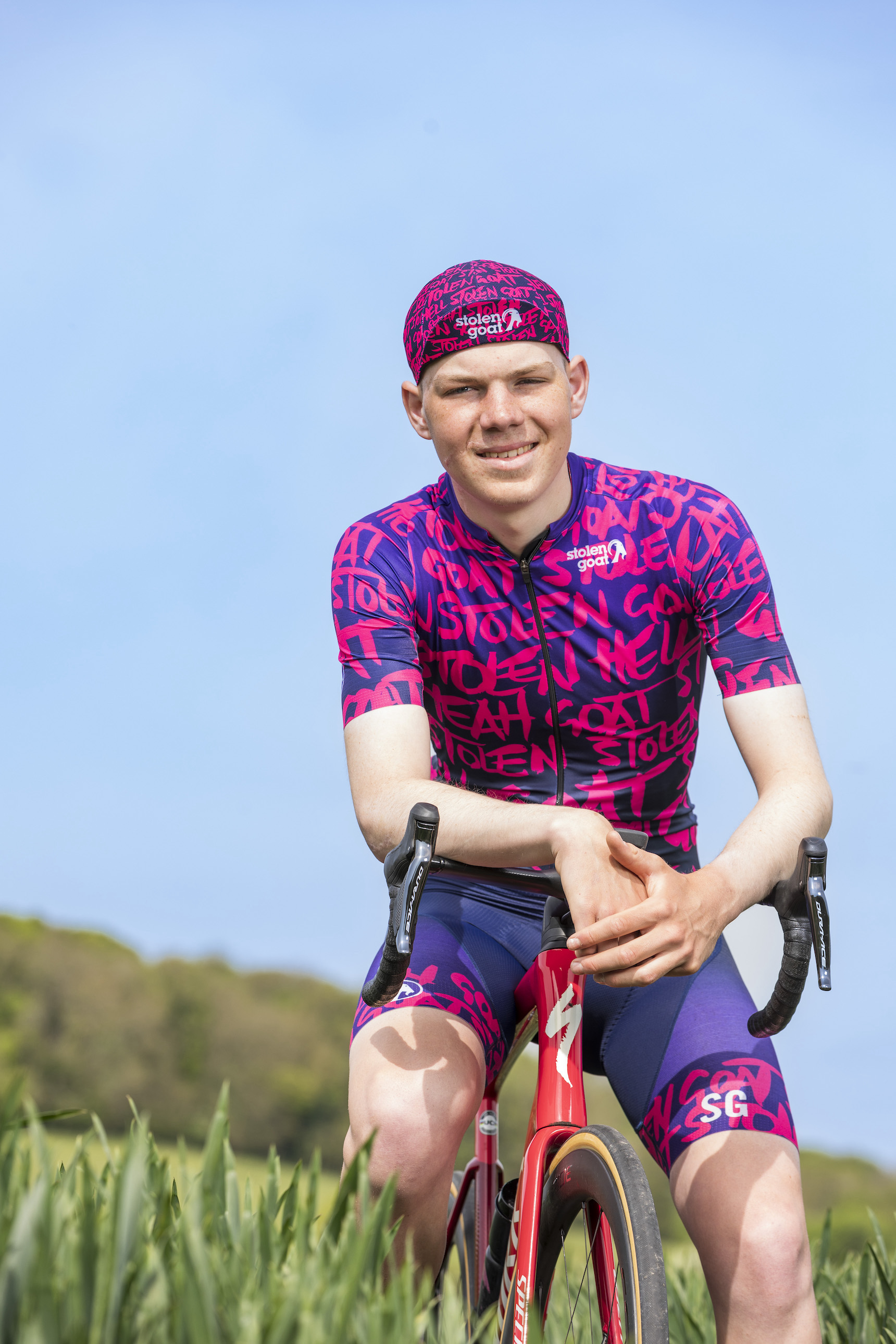
Townsend has no memory of either crash – something he counts as a blessing
Speaking to me in early June just a week after completing the epic adventure, Townsend is still buzzing. “We averaged 100 miles a day, which might not sound huge, but when you’re wet and cold on an unrideable trail in the Welsh mountains with no phone service, it’s really mentally taxing,” he grins, paying homage to the tenacity of his riding partner. “My dad is just a normal cyclist – he’s 84kg and has a full-time job – but he racked up a TSS [Training Stress Score] of 4,800 over the two weeks – that’s mental, I can’t even do that!” Aside from the renewed admiration for his dad, I sense that GB Divide confirmed something even more important for Townsend: that he still has a reason to ride – no longer for race wins or BC points, but for the sheer madcap joy of it.
In his own words, how has his relationship to cycling changed? “I used to be obsessive about churning out stupid watts-per-kilo numbers,” he reflects. “Now I realise you can do both: ride with friends and family, be sociable and happy, and be fast. You don’t need to be a robot on a bike.” Does he wish he’d realised that sooner? “Yeah, yeah, very much,” he says, smiling wryly again, “you get wiser in your old age!”
Father's view: 'To come back twice... It's extraordinary!'
It’s a scary business being the parent of a road racer. We asked Guy Townsend what it was like witnessing his son pull through life-threatening injuries not once but twice:
“For the first two hours after Tom’s first crash, we were told to expect the worst. I remember running from my office thinking ‘let me at least get there’. Mercifully by the time I arrived the doctors were confident he was going to survive. It’s pure fluke that he escaped without lasting effects from the brain injury. After 10 days, he walked out of hospital and two days later was back on the Wattbike. That seemed quick but, being aware of the risk of depression following concussion, I was above all relieved that he was back in his happy place doing what he loved.
“Fast forward to 2021 and we were confident in his form for the Severn Bridge race. I was standing at the top of the hill watching him come through each lap, until the lap he didn’t appear, then the black flag. My heart sank. I jumped on my bike and rode to the scene, and sure enough there was Tom prone in the road, still unconscious – I recognised his socks from a distance. The paramedic’s hands were shaking as they told me the air ambulance had been called – I knew it was bad.
“This time it took him three-and-a-half weeks to get back on the trainer, and by this point I didn’t care if he ever rode a bike again. But his passion was undeterred, and I was hugely relieved. The way he has come back twice is truly extraordinary. “The prospect of him riding outside again was really scary . He and I went up to the Yorkshire Dales for a few days, and on the first descent, he was gone! The next day while climbing in foul conditions, he slowed to wait for me. As I pulled alongside I noticed he was grinning and asked what was funny. His reply said it all: ‘This is so much better than Zwift!’”
This article was originally published in the 23 June 2022 print edition of Cycling Weekly magazine. Subscribe online and get the magazine delivered to your door every week.

Thank you for reading 20 articles this month* Join now for unlimited access
Enjoy your first month for just £1 / $1 / €1
*Read 5 free articles per month without a subscription

Join now for unlimited access
Try first month for just £1 / $1 / €1

David Bradford is features editor of Cycling Weekly (print edition). He has been writing and editing professionally for more than 15 years, and has published work in national newspapers and magazines including the Independent, the Guardian, the Times, the Irish Times, Vice.com and Runner’s World. Alongside his love of cycling, David is a long-distance runner with a marathon PB of two hours 28 minutes. Having been diagnosed with retinitis pigmentosa (RP) in 2006, he also writes about sight loss and hosts the podcast Ways of Not Seeing.
-
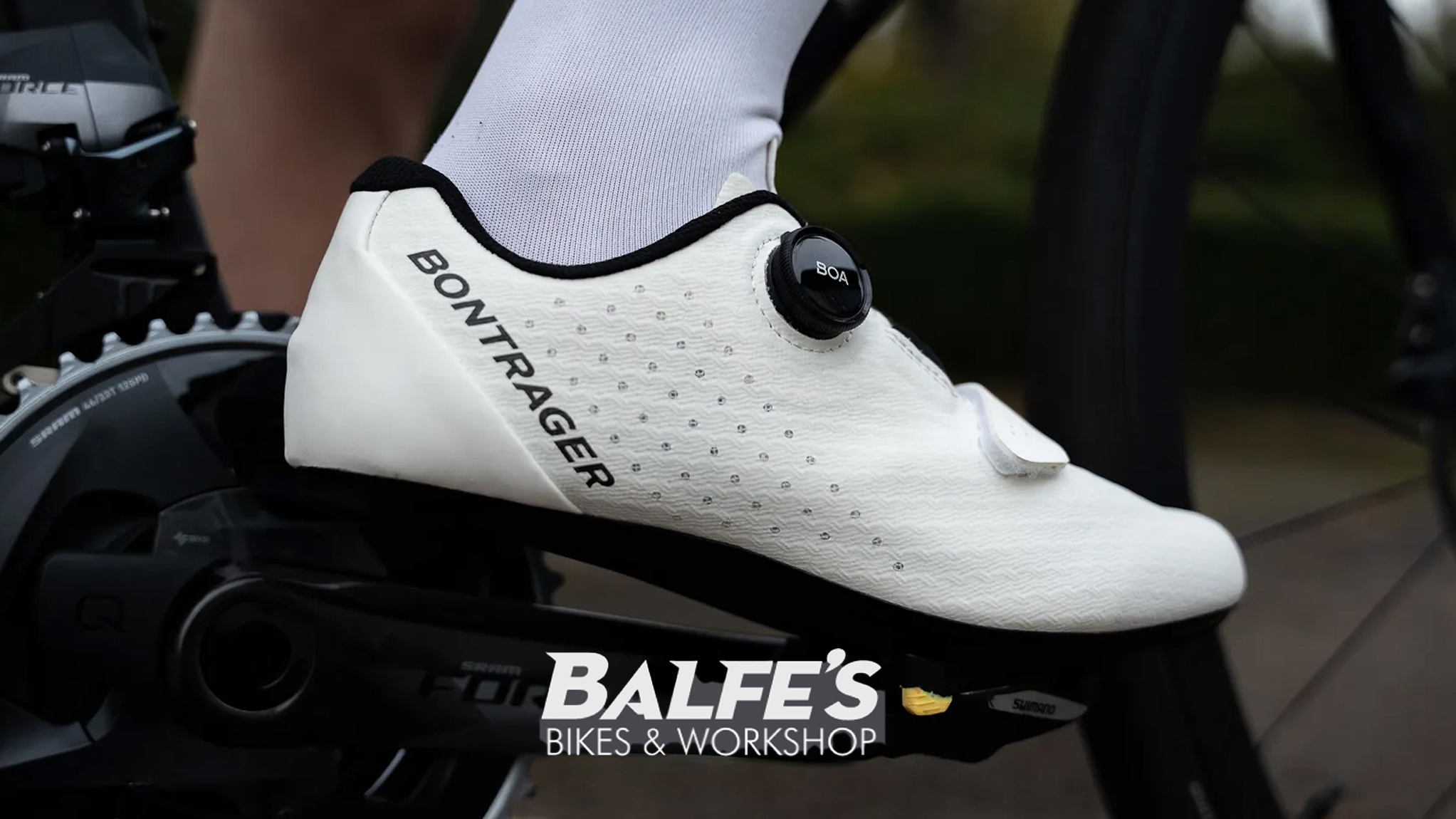 Gear up for your best summer of riding – Balfe's Bikes has up to 54% off Bontrager shoes, helmets, lights and much more
Gear up for your best summer of riding – Balfe's Bikes has up to 54% off Bontrager shoes, helmets, lights and much moreSupported It's not just Bontrager, Balfe's has a huge selection of discounted kit from the best cycling brands including Trek, Specialized, Giant and Castelli all with big reductions
By Paul Brett
-
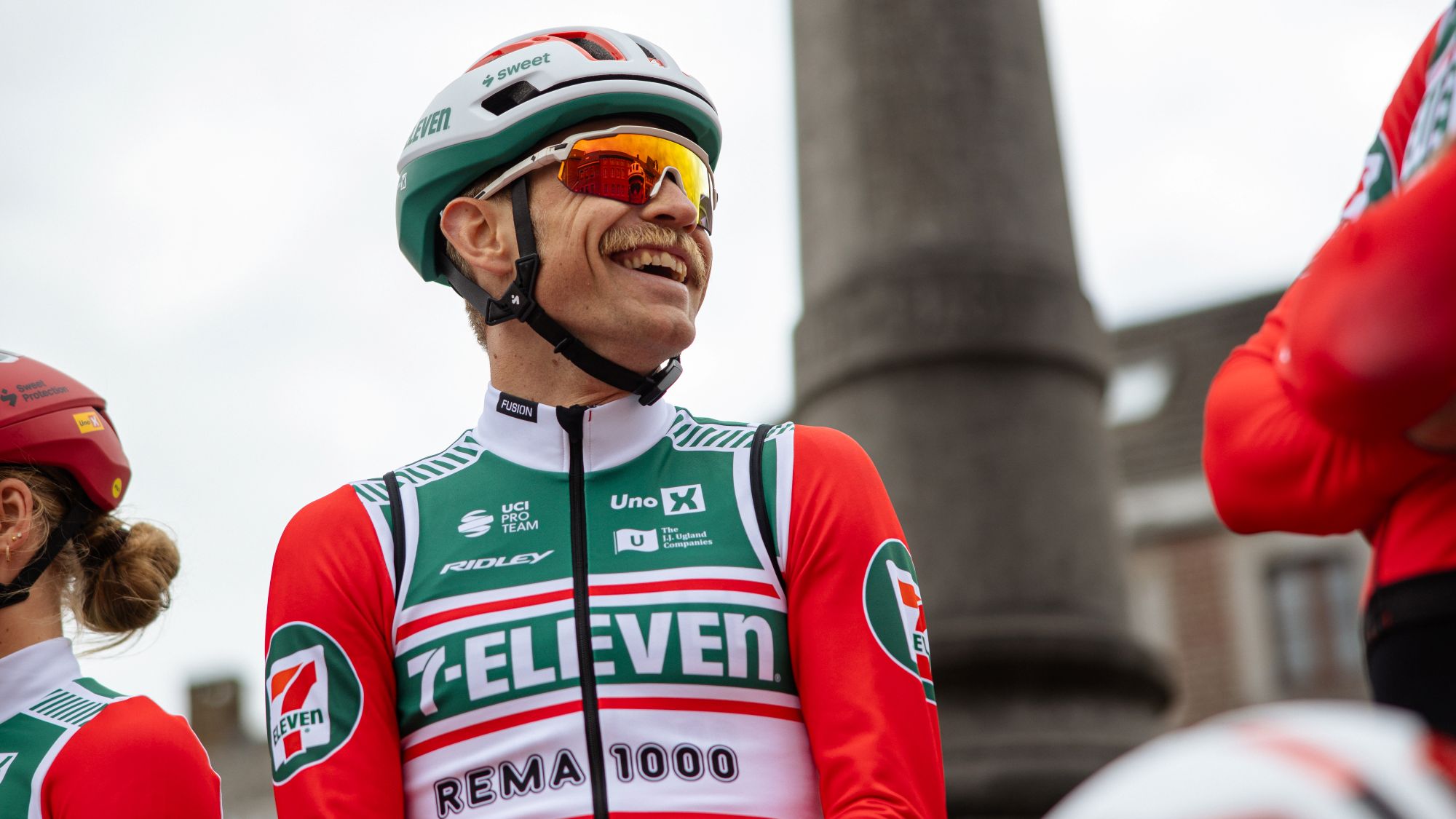 7-Eleven returns to the peloton for one day only at Liège-Bastogne-Liège
7-Eleven returns to the peloton for one day only at Liège-Bastogne-LiègeUno-X Mobility to rebrand as 7-Eleven for Sunday's Monument to pay tribute to iconic American team from the 1980s
By Tom Thewlis
-
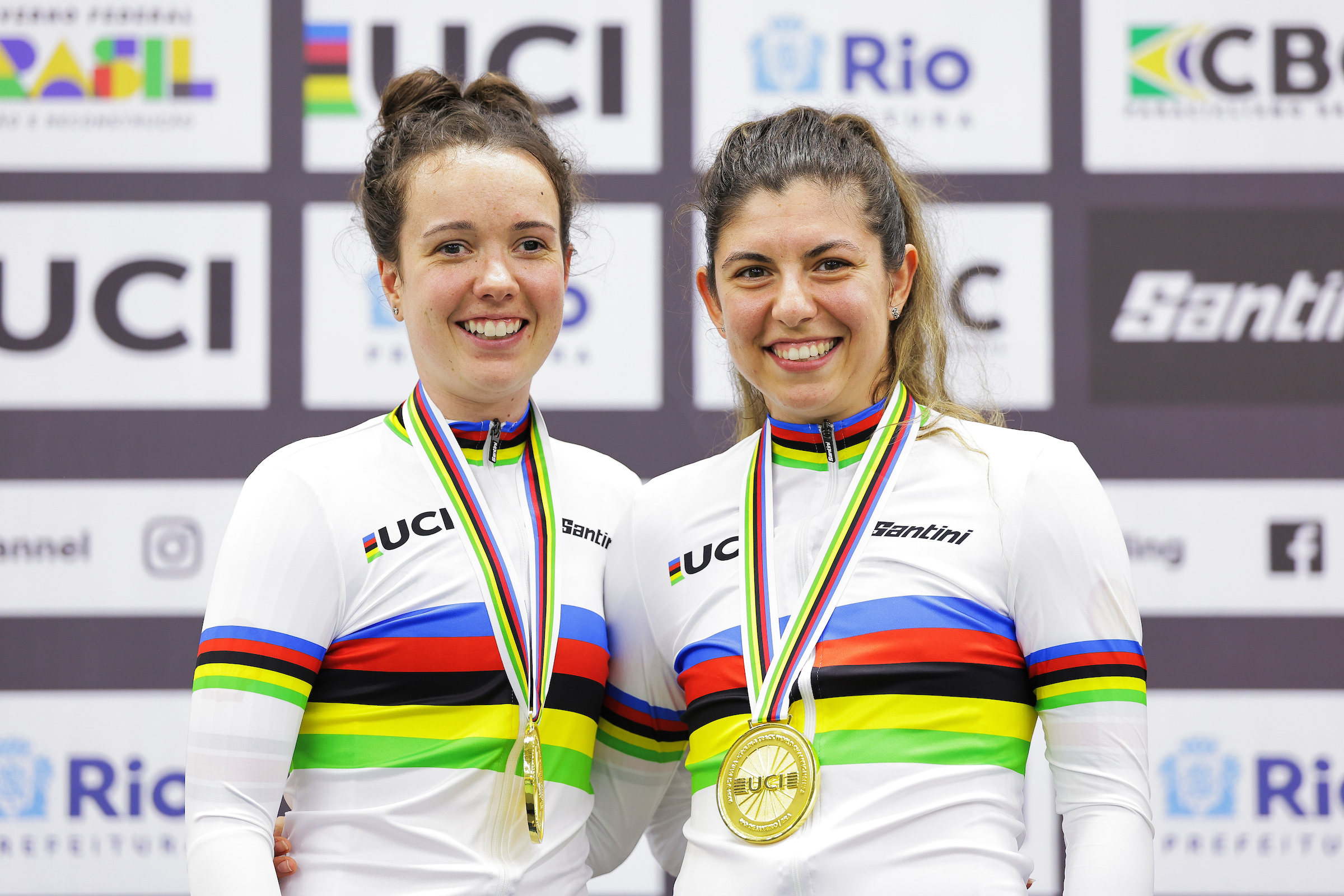 'Back then I was on the edge of life – but now I'm a multi world champion': Para-cyclist Lizzi Jordan's golden comeback from near-fatal food poisoning
'Back then I was on the edge of life – but now I'm a multi world champion': Para-cyclist Lizzi Jordan's golden comeback from near-fatal food poisoningKeen equestrian Lizzi Jordan was riding high until a freak illness changed her life forever. Now, having swapped reins for handlebars, she is not only back in the saddle but winning on the world stage
By David Bradford
-
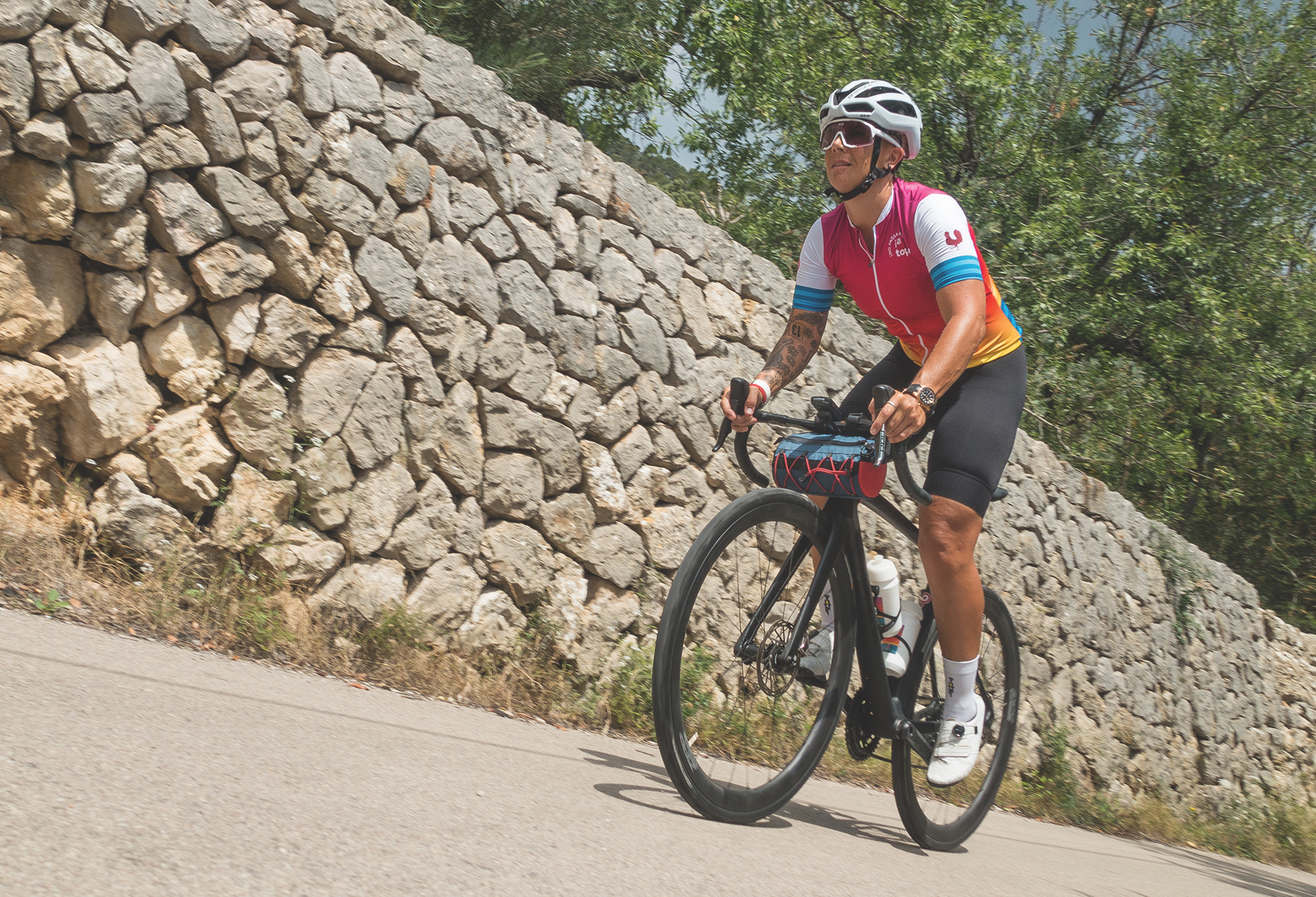 'One transplant, two cancer surgeries – I get knocked down but I get up again': The champion rider with next-level resilience
'One transplant, two cancer surgeries – I get knocked down but I get up again': The champion rider with next-level resilienceFacing repeated risks to her life from kidney failure, Ottilie Quince is determined to keep bouncing back – on and off her bike
By Chris Marshall-Bell
-
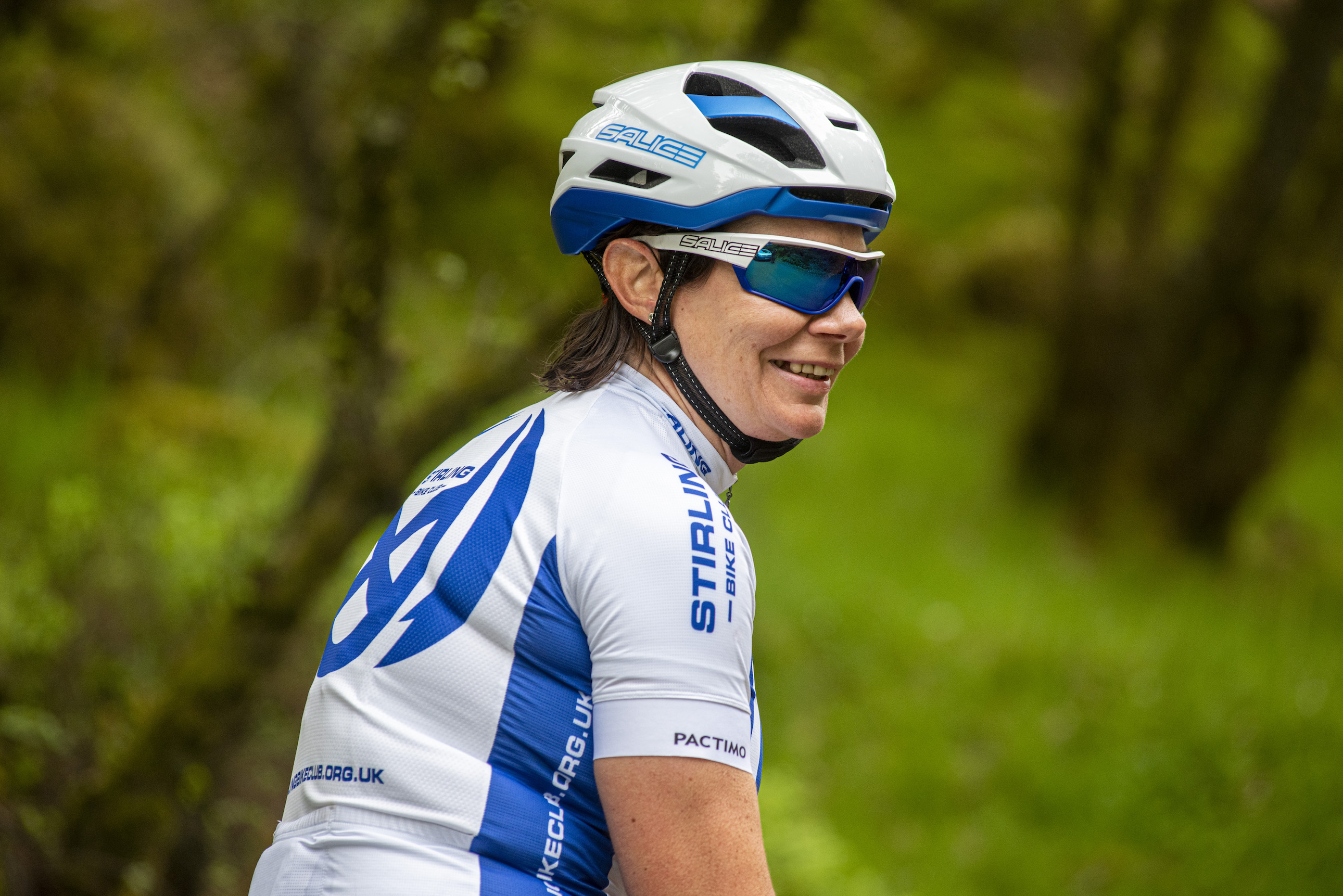 'I thought I'd never be pain-free again – but now I'm cherishing every ride': The comeback from a devastating hit-and-run crash
'I thought I'd never be pain-free again – but now I'm cherishing every ride': The comeback from a devastating hit-and-run crashLong-distance record-setter Christina Mackenzie tells us about her biggest challenge yet – returning to racing after a collision in which she was left for dead
By Trevor Ward
-
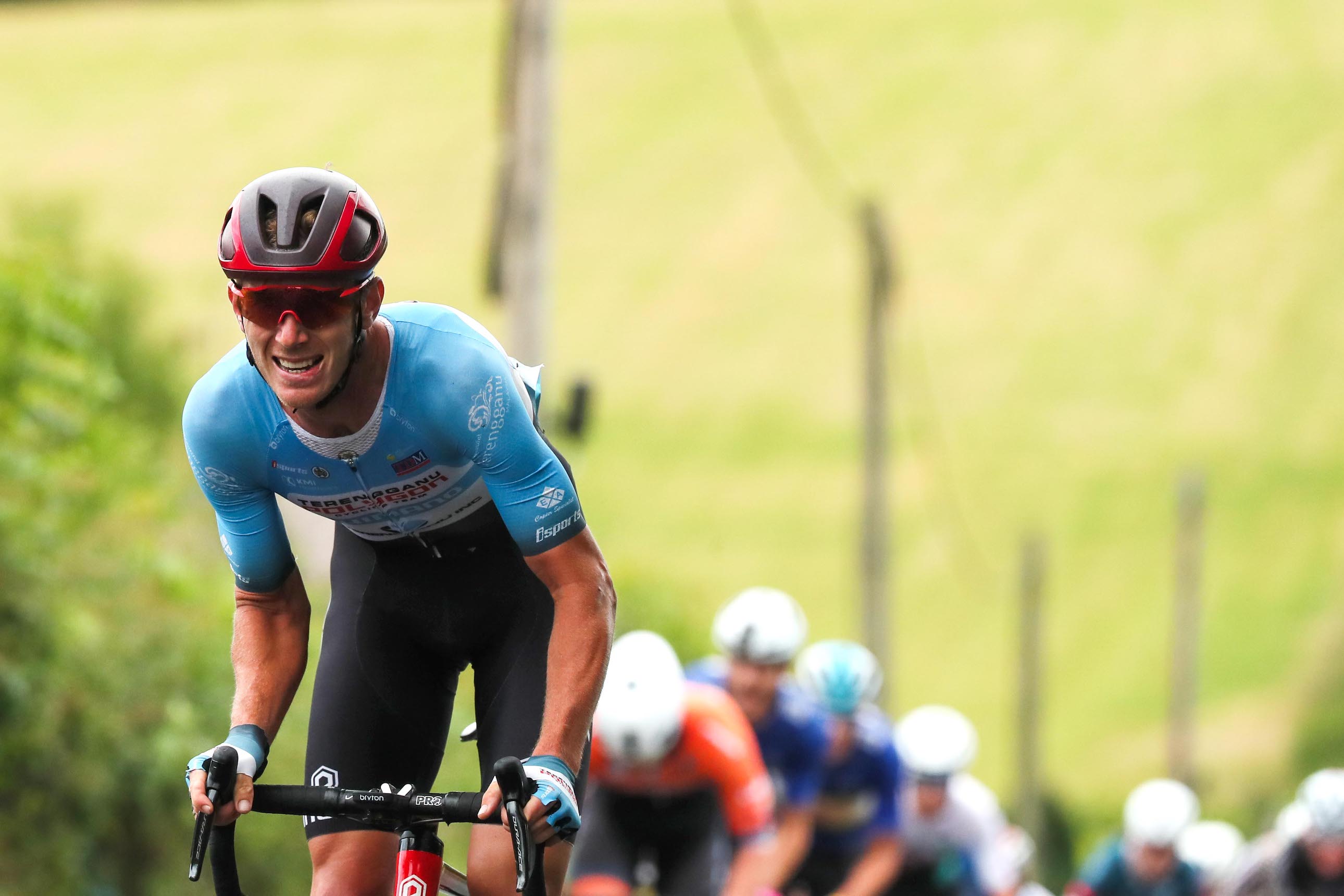 'My skull was cracked from ear to ear, a shard of glass just missed my artery': The journey back to the podium after head-on smash
'My skull was cracked from ear to ear, a shard of glass just missed my artery': The journey back to the podium after head-on smashBouncing back to the pointy end of racing just three months on from a crash almost too horrific to fully describe, Jesse Ewart’s may be the greatest comeback story you have never heard
By Chris Marshall-Bell
-
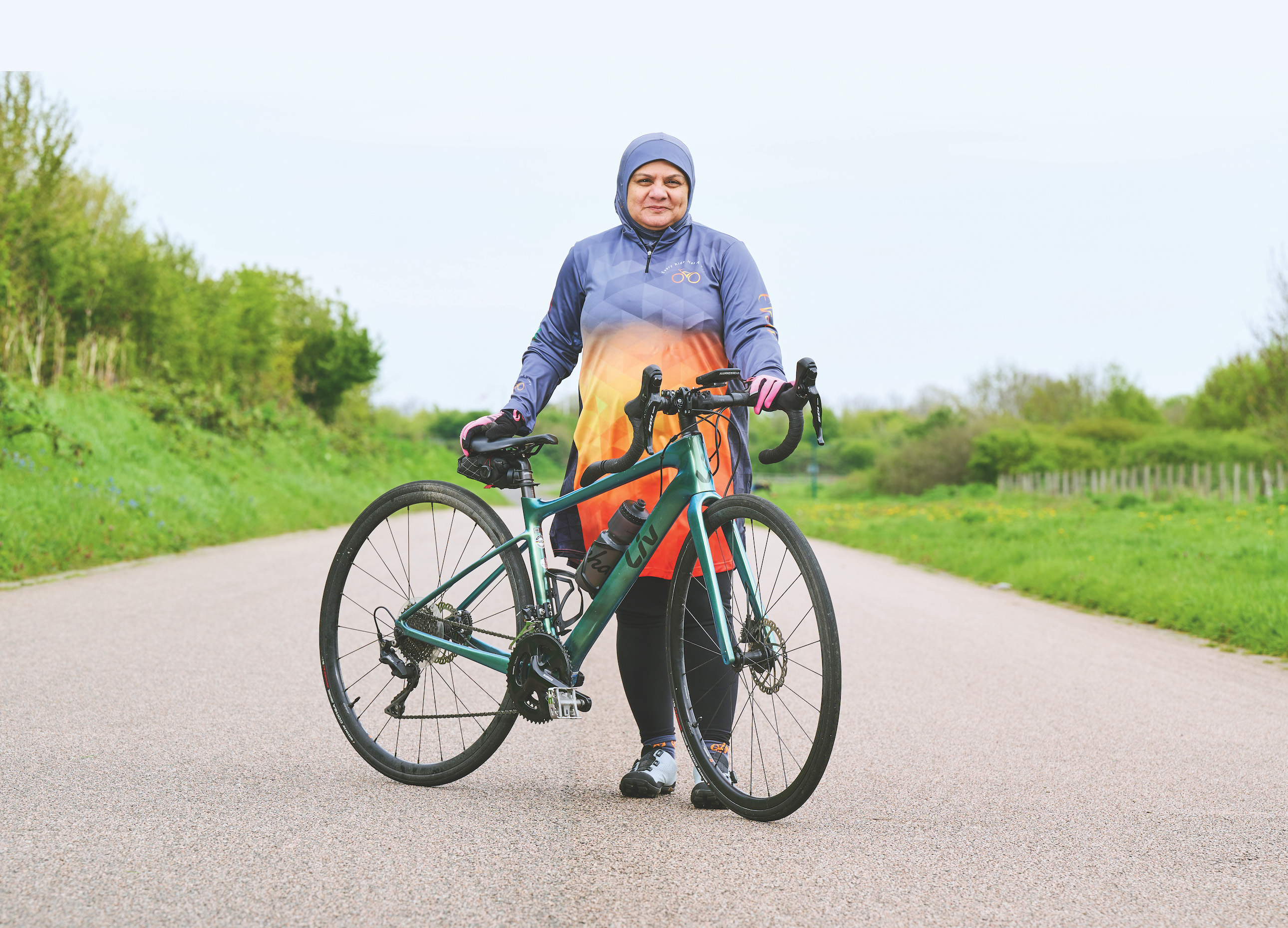 'Whatever happens, I'm starting the club': Iffat Tejani on realising her bucket list dream of opening up cycling to Muslim women
'Whatever happens, I'm starting the club': Iffat Tejani on realising her bucket list dream of opening up cycling to Muslim womenHow a life-and-death diagnosis set free a life-long ambition to break down barriers and rally a community onto bikes
By David Bradford
-
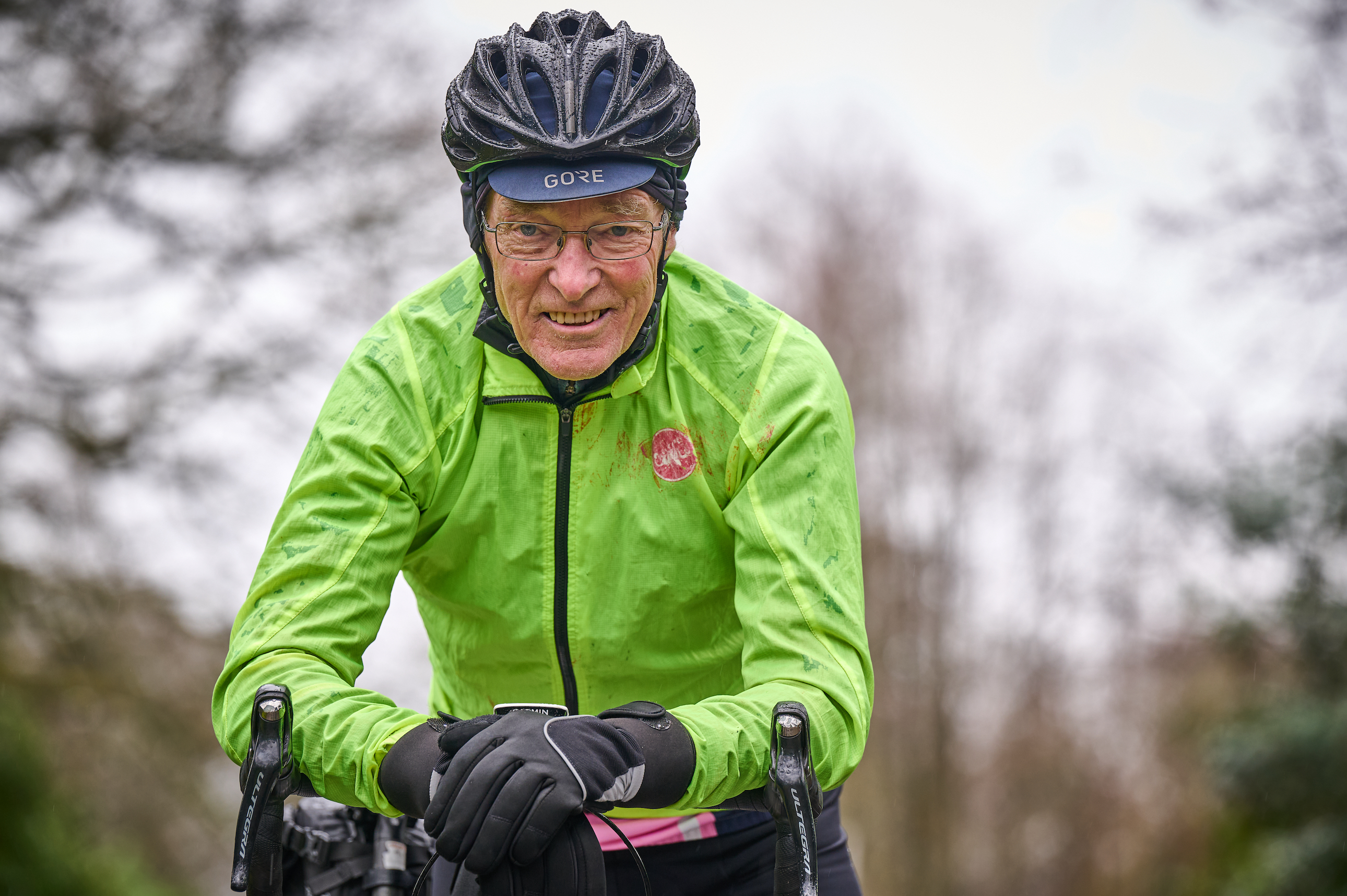 'Cycling's been a life-saver': The record-breaking 87-year-old who still rides 150 miles a week
'Cycling's been a life-saver': The record-breaking 87-year-old who still rides 150 miles a weekDowning his gardening tools, pensioner Martin Harvey got on his bike and set about writing his name into the long-distance record books
By David Bradford
-
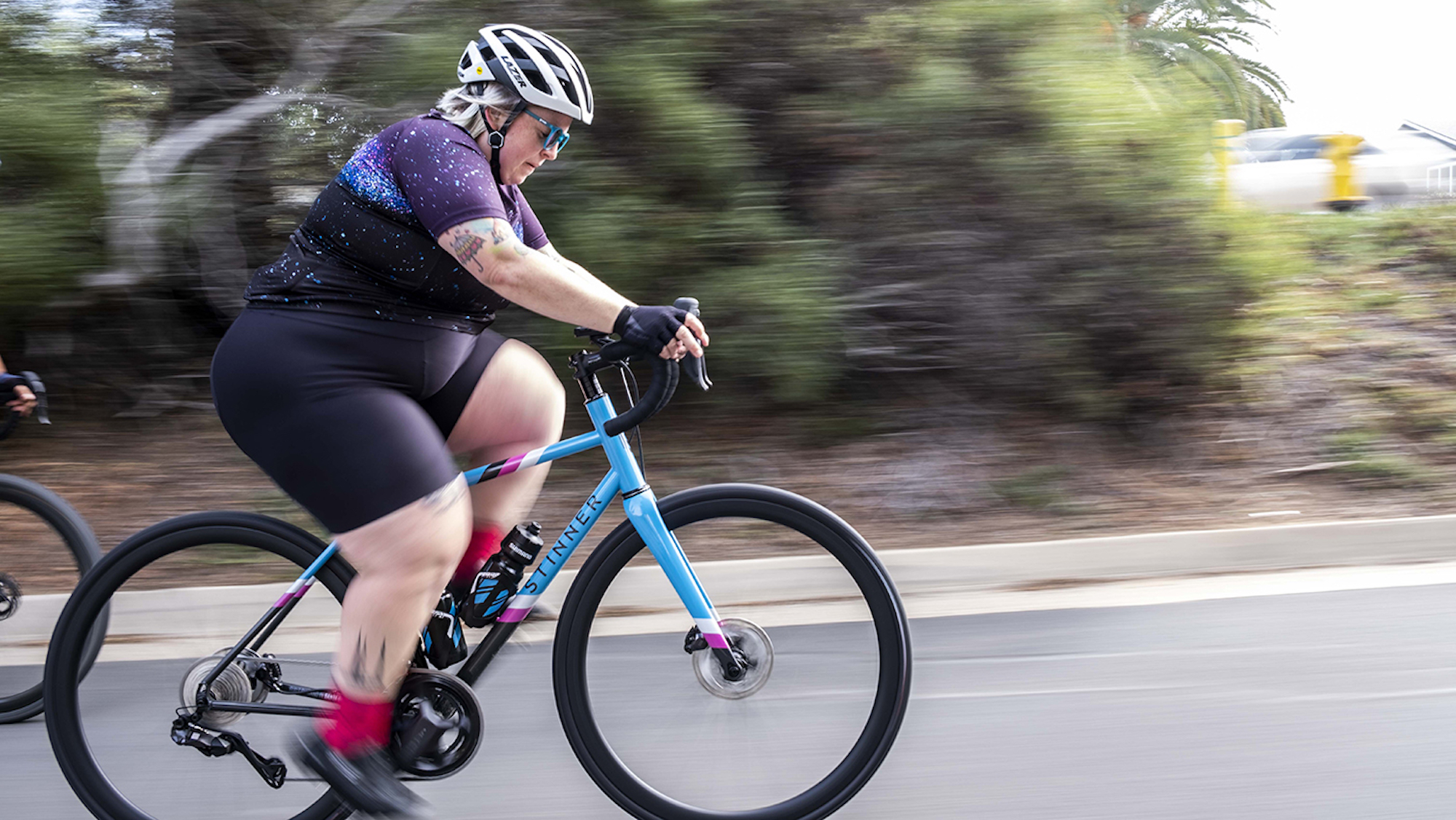 'I'm fat – and I'm OK with that': The size-inclusion campaigner seeking to make cycling safe and accessible for everyone
'I'm fat – and I'm OK with that': The size-inclusion campaigner seeking to make cycling safe and accessible for everyoneAfter struggling to find riding kit in her size, Marley Blonsky made it her life’s mission to make cycling more accessible and welcoming to riders of all shapes and sizes
By David Bradford
-
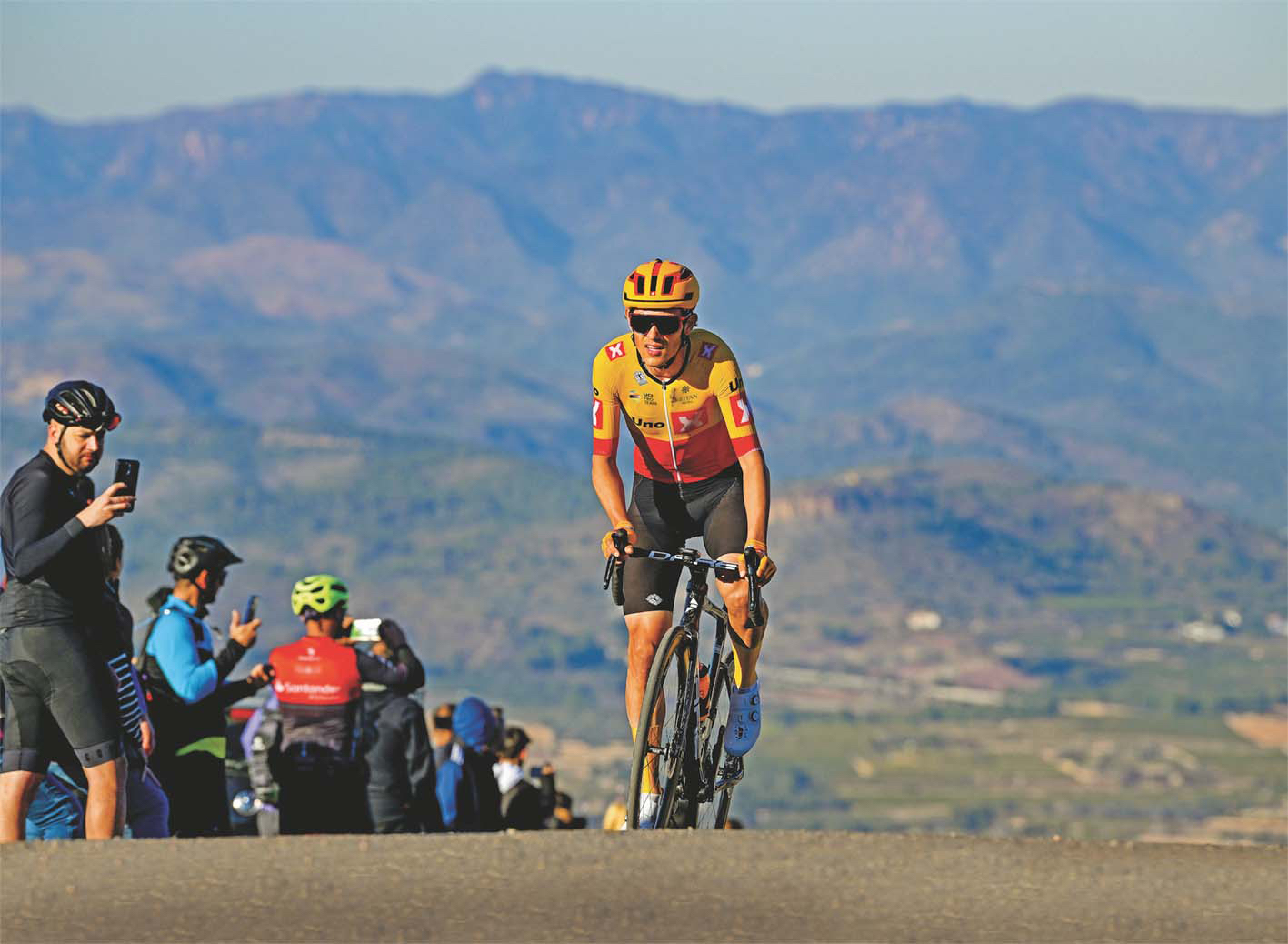 Saved by a doping test: The pro rider treated for cancer after abnormal blood result
Saved by a doping test: The pro rider treated for cancer after abnormal blood resultWhen his team doctor called about an abnormal test result, Torstein Træen could not believe what was happening – but it would turn out to be a potentially life-saving red flag
By Chris Marshall-Bell